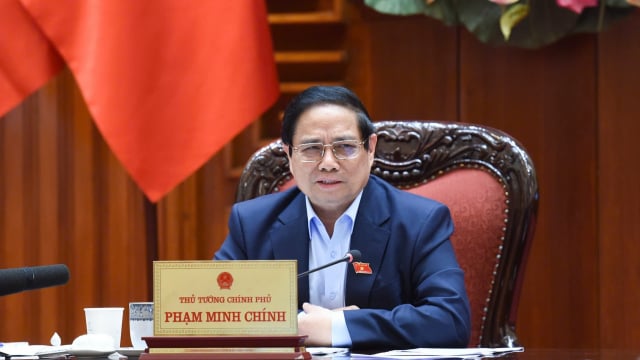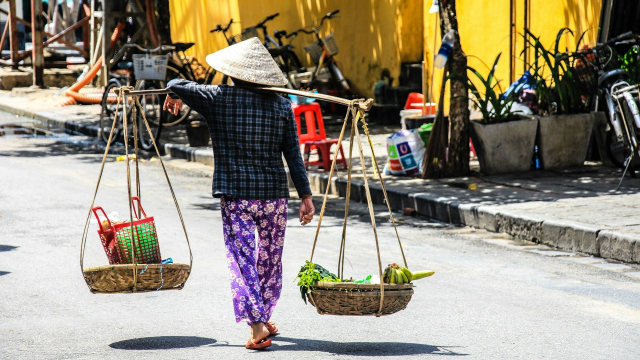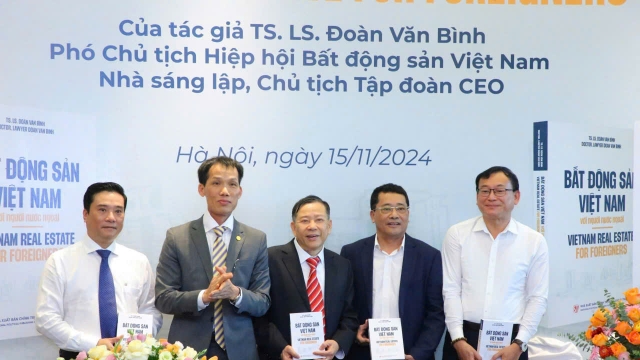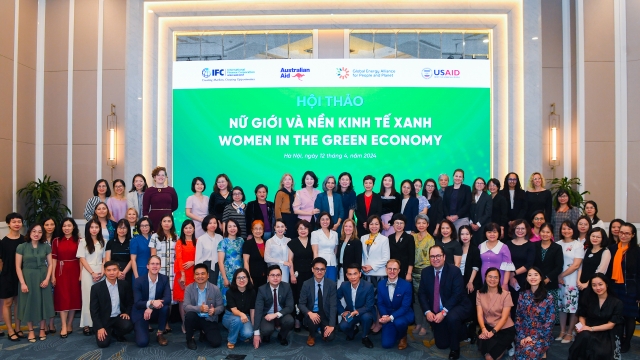National Focus
Corruption and poverty remain great concerns for Vietnamese
Vietnamese citizens are more satisfied with public services but concerned about the environment, poverty and corruption, revealed in 2018 PAPI report.

There is no progress in levels of bribery for obtaining land use rights certificates or diversion of public funds by officials, according to an annual foreign-funded survey.
The UNDP-backed 2018 Vietnam provincial governance and public administration performance index (PAPI) reveals that nearly 60 per cent of citizens said that corruption at the commune level had decreased in the past three years.
However, the proportion dropped to less than 50 per cent at the national level.
Looking at the positive signs, fewer citizens have had to pay bribes for state employment, public healthcare, primary education, or construction permits.
UNDP resident representative Caitlin Wiesen said that corruption emerged as one of the top three issues of greatest concern last year.
When asked about the most important issues facing the country, poverty was the most important issue for citizens in 2018. Despite rapid improvements in economic condition, about 25 per cent cited poverty as their top concern.
Since 2015, concern about environmental governance has also surged in importance. The 2018 PAPI survey results show strong public support for environmental protection, even at the expense of economic development.
Vietnamese also expressed a strong preference for renewable green energy, though this must be coupled with a reliable supply of electricity. In addition, citizens have concerns about worsening water quality in their localities. More than half of respondents said water quality had worsened in the past three years.
E-governance, a new dimension of PAPI report, experienced low levels of provinces’ performance.
Citizens reported several positive trends related to political participation at the local level in 2018. Results indicate a consistent decrease in the number of citizens reporting that they were asked by a village chief or local official to contribute to a project, suggesting decreased use of pressure to force citizens to contribute to a local infrastructure project financially, with in-kind contributions, or through their labor.
Transparency in local decision-making also saw significant improvements, including higher satisfaction with the clarity of commune budgets and expenditures. However, transparency in land use plans, despite some improvement, remains a weak area that local governments need to improve.
A greater number of citizens reported interactions with village and commune authorities in 2018. However, they had few chances to meet with leaders at higher levels of government.
Regarding the provision of basic public services, the 2018 results revealed a striking divergence.
The sectors of public health and basic infrastructure saw continued improvement. Public primary education saw some decline, however, mainly due to lower satisfaction with the quality of primary schools and primary education.
As gender equality is a high priority in Vietnam’s sustainable development agenda, the 2018 report examines public views on gender and leadership positions. A majority of voters have no preference for either male or female candidates.
There was good progress by provinces in public administrative procedures with improvement in all four services including certification services as well as application procedures for construction permits, land use right certificates, and personal documents.
Quang Ninh maintains top ranking in provincial competitiveness index
Resolution 68: A turning point in Vietnam's private sector policy
As Vietnam sets its sights on becoming a high-income country by 2045, Resolution 68 lays a crucial foundation. But turning vision into reality requires not only good policy - but also unwavering execution, mutual trust and national unity.
Vietnam plans upgrade of Gia Binh airport to dual-use international hub
Vietnam plans to upgrade Gia Binh Airport in Bac Ninh province into a dual-use international airport to support both military and civilian operations, the government said on Friday.
Lives under the scorching sun: Outdoor workers racing against climate change
Under unforgiving conditions, the outdoor workers - the backbone of urban economies - endure the harshest impacts of climate change while remaining overlooked by social safety nets. Their resilience and struggles highlight the urgent need for better protection in the face of rising temperatures and precarious livelihoods.
CEO Group chairman unveils guide to Vietnam real estate for foreigners
Doan Van Binh, Chairman of CEO Group and Vice President of the Vietnam National Real Estate Association, introduced his latest book, “Vietnam Real Estate for Foreigners,” at a launch event in Hanoi on Friday.
Women leading the charge in Vietnam's green transition
Acting for increased women’s participation and leadership in climate action, Vietnam can accelerate a transition that is more inclusive, just, and impactful.
Steam for girls: A journey of passionate and creative girls
The "Steam for girls 2024" competition provides a creative platform for Steam and an opportunity for students to connect with peers from various regions within Vietnam and internationally.










































